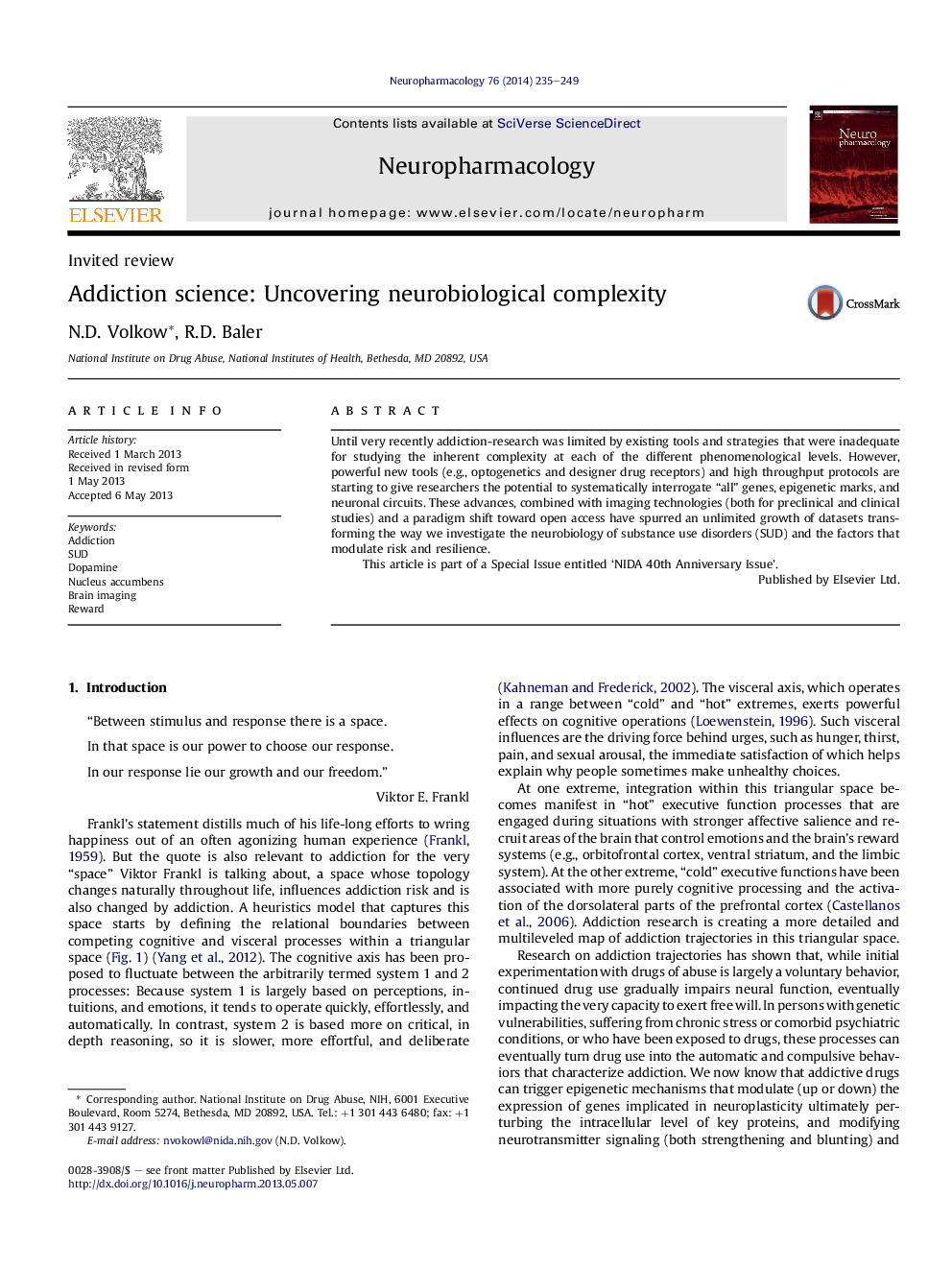| Article ID | Journal | Published Year | Pages | File Type |
|---|---|---|---|---|
| 2493272 | Neuropharmacology | 2014 | 15 Pages |
•Addiction is a clinical disorder, not a criminal behavior.•We are beginning to tackle addiction as a problem of “systems”.•Research has delivered countless new targets for addiction medications.•Large, open access datasets will transform the science of risk and resilience.
Until very recently addiction-research was limited by existing tools and strategies that were inadequate for studying the inherent complexity at each of the different phenomenological levels. However, powerful new tools (e.g., optogenetics and designer drug receptors) and high throughput protocols are starting to give researchers the potential to systematically interrogate “all” genes, epigenetic marks, and neuronal circuits. These advances, combined with imaging technologies (both for preclinical and clinical studies) and a paradigm shift toward open access have spurred an unlimited growth of datasets transforming the way we investigate the neurobiology of substance use disorders (SUD) and the factors that modulate risk and resilience.This article is part of a Special Issue entitled ‘NIDA 40th Anniversary Issue’.
